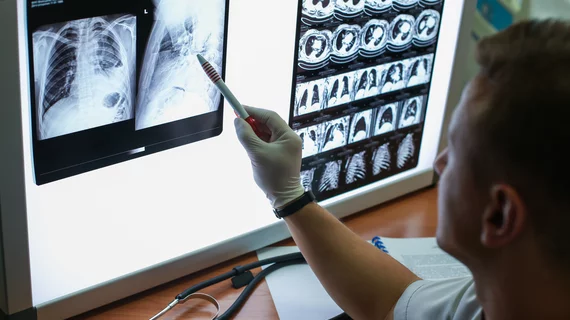Lunit receives FDA clearance for AI software that triages urgent chest X-rays
Lunit’s AI-based software used for triaging chest X-rays has received Food and Drug Administration 510(k) clearance, the company announced Monday.
The software is designed to analyze chest X-rays for specific abnormalities that would be considered urgent findings.
Trained on over 160,000 chest images, including radiographs and CT scans, the software is said to have 94%-96% sensitivity and 95%-99% specificity for detecting pleural effusion and pneumothorax. Lunit’s website also claims the system detects 10 of the most common image anomalies with 97%-99% accuracy and supports tuberculosis screening.
Physicians using the software will be alerted immediately when abnormalities are spotted, thereby minimizing the time-to-diagnosis and streamlining the treatment process in emergent cases.
"Lunit Insight CXR Triage can especially show its value in emergency settings where timely workflow is critical, and we look forward to installations in hospitals and medical centers across the United States,” CEO of the company Brandon Suh explained.
The software will be presented at RSNA 2021 taking place November 28-December 2.
You can read the full statement here.

